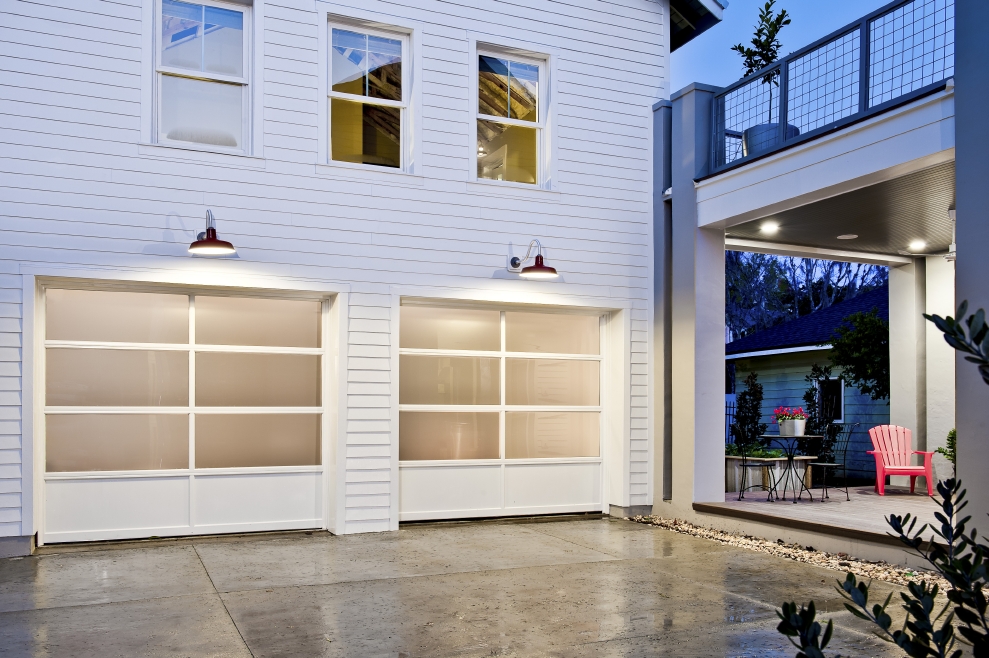Table of Contents
When to Replace Your Garage Door Opener
The lifespan of your garage door opener can depend on the type of garage door opener you have, how often you use it and how well-cared for it is. If you have a professional routinely inspect and service your garage door, chances are the mechanisms can last a long time. However, no matter how effectively you take care of a garage door opener, you will eventually need to replace it. The lifespan of most garage door openers is about 10 to 15 years. But how do you know when it’s time for a new or updated garage door opener? To prevent a sudden breakdown or structural damage from a malfunctioning garage door, it helps to watch for a few problems. Continue on to review these common issues, but if it is already time for a replacement, view the video below to learn about the process of replacing your opener.
Check out the following signs that your garage door opener might be on its last legs.
1. The Garage Door Opener Just Doesn’t Work (Obviously…)
If your garage door stops functioning out of nowhere, there could be several reasons why. Here are some troubleshooting tips to try yourself:
- Garage door remote: Do the batteries need to be replaced or does the remote need reconfigured?
- Button on the inside of the garage: Does the button activate the lift when pressed?
- Fuse box: If there is no noise, movement, or lights, check the power source to make sure the outlet is working. If safe to do so, can you reset the connections in the breaker?
- Backup battery equipment: Is the equipment beeping or flashing, indicating there’s a problem?
- Garage door opener: First, make sure the opener is not in lock mode (the lock button is on the wall control and may have been pressed by mistake). Lock mode would lock out the remotes completely. If that’s not the issue, check the opener system itself- do you notice wires that have been pulled out of the opener? Does anything look unusual? Don’t touch any loose wiring, but make notes about your observations for a technician.
Rarely do garage door openers stop working without any prior signs, so the issue could be inside the box. A repair specialist can help you determine if your opener can be fixed or needs to be replaced.
2. The Garage Door Opens and Shuts on Its Own
No, you don’t have a ghost. Instead, you probably have a garage door opener that’s misfiring.
The last thing you want is someone getting access to the inside of your garage or home because your garage door opened on its own when no one was home. There are many reasons a garage door might randomly open, so call a technician to diagnose the issue. In the meantime, shut off the power to the garage door opener if you safely can.
3. The Garage Door Opener Makes Loud or Strange Noises
Like any piece of machinery, your garage door opener makes noise as it moves. However, have you begun to notice a garage door sound that’s a bit odd or unusual? If so, you need to call a professional.
Older garage door openers will naturally begin to get louder as the years pass. At some point, though, they need to be repaired or replaced. For instance, you may notice that your garage door opener sounds noisy and also stops working efficiently. These are signs of an opener that is past its prime.
4. The Garage Door Won’t Go Up or Come Down
If your garage door gets stuck going up or down, try checking the condition of the tracks before you conclude it’s the opener. Sometimes, the tracks that guide the garage door can become bent or even clogged with debris. When the door can’t maneuver along the tracks, it stays in one place.
Before blaming this issue on the garage door opener, see if you can safely move your garage doors up. Then, examine the tracks for anything unusual. You may also want to rebalance the doors themselves, especially if they seem weighted in one direction or another.
If your tracks are clear, the garage door opener is the likely culprit. You’ll want to call a professional to take a look to avoid any injuries trying to repair a garage door by yourself.
5. You Notice Visible Vibrations When the Opener Operates
When you glance up at your garage door opener in use, can you see it moving in place?
The shaking could mean that the opener is loosening from its hold on the ceiling. Leaving this go could cause the opener system to fall. Why risk yours falling on the garage floor or, worse, on top of a vehicle?
On the other hand, shaking could mean the motor is being overworked. The shaking could cause the unit to drop the garage door, creating major damage to the door.
Call a garage door professional to see what may be wrong and ensure the opener is secure to the ceiling.
6. You Have an Old Garage Door Opener
When your garage door opener has been installed for over a decade, it might be time for an upgrade. The newest garage door openers have safety and security innovations. Plus, if you live in California, you are required by law to have a garage door opener with a battery backup. If yours doesn’t, you are obligated to update your unit.
Old garage door openers may still work, but they’re hardly energy efficient and frequent repairs are inconvenient and pricey. Plus, they don’t have all the recent add-ons, such as Wi-Fi capabilities or the ability to operate the garage door using your smartphone. Remember — the more technologically customized your garage door opener unit is, the harder it will be for thieves to gain entry by mimicking its frequency.
Ditch the dinosaur and replace it with a smooth-running system that’s trustworthy.
Listen to the Signs Indicating You Should Replace Your Opener
Rather than waiting to address your garage door opener worries, contact a garage door service provider today. You’ll be glad you did when you use your garage door next and it works without a hitch.
Do you want to upgrade your residential garage door opener soon? Call our team of garage door experts for pricing and options from our family-owned business.


